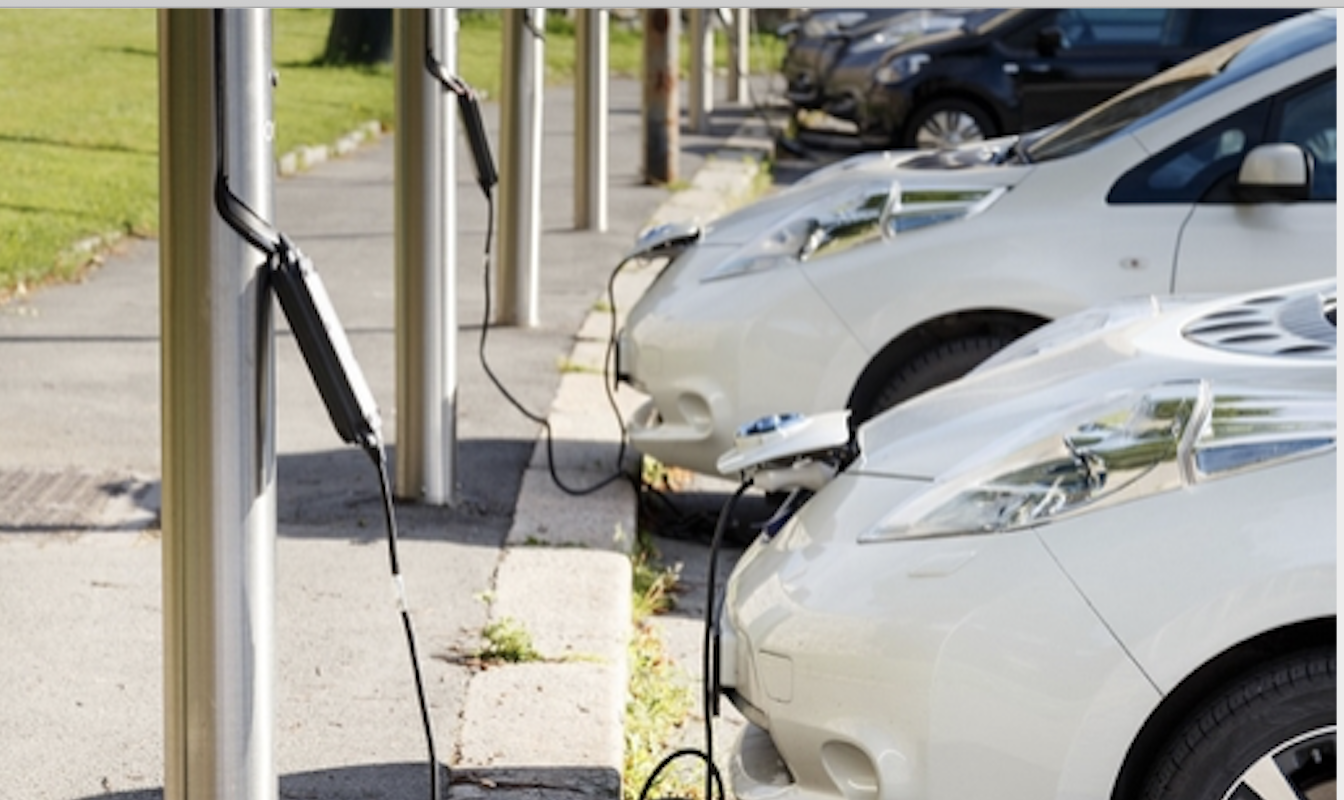
The target of two million electric cars within the next eleven years has been set by one of the world’s biggest environmental campaigning organizations.
A report from The Climate Group, which has centres in New York and Delhi and is headquartered in London, covers the commitments of 23 of its member companies.
These companies aim to switch 145,000 vehicles in 66 countries to electrical power by 2030, avoiding production of more than 6.6 million metric tons of greenhouse gases, equivalent to the carbon emissions of 1.9 million UK households.
The group brings together 31 large companies with a combined revenue of more than $500bn (£385bn, €439bn).
The group, a non-profit formed in 2004, which calls its emissions project EV100, is the secretariat of the Under2 Coalition, an alliance of state and regional governments worldwide committed to cutting emissions to zero by 2050.
The coalition consists of more than 200 administrations in 43 countries. These countries contain 1.3 billion people, about 16 per cent of the world’s population, and represent nearly 40 per cent of the global economy.
Among the group’s members, the Ikea company, now renamed Ingka, is reported to be committed to zero-emission last-mile deliveries in five large cities by next year. It has just reached this goal in Shanghai.
Ingka’s objective is particularly relevant in Amsterdam, which will have a practically zero emissions policy in its city centre by 2025. If Ingka does not comply, its vehicles will lose direct access to more than 390,000 households and will lose $30.2m in annual turnover. The company regards its commitment as future-proofing.
EDF, the French electricity provider with a large government stake, intends to have 31,000 electrically powered vehicles within eleven years, 27,000 of them in France. Its customers would be served by 75,000 charging points and would have access to 250,000 interoperable chargers by 2022.
The Paris city government has a parallel project to phase out all combustion engines from the French capital by 2030, ten years ahead of the national target.
A German participant, the Bonn-based international logistics company Deutsche Post DHL, has introduced petrol-saving scooters, cutting fuel costs by 60-70 per cent and maintenance and repair bills by 60-80 per cent.
In the US, Bank of America has installed more than 100 workplace charging ports since 2016, offering a free service to staff, complementing its low-carbon vehicle reimbursement program, in which nearly 10,000 employees have taken part. Yet more charging ports are due this year.
Another US participant, the Port Authority of New York and New Jersey, the country’s largest provider of a transport infrastructure in a metropolitan area, will electrify all its vehicles by 2030.
On the world stage more than two dozen cities are committed to introducing low-emission zones by 2030, and more than a dozen countries are to end combustion engine sales by 2040. More than half the countries have their sights on 2030, including Costa Rica, Denmark, the Irish Republic, the Netherlands and Norway.
Inroads are being made in India too – the World Health Organization calculates the country has 14 of the world’s 15 most polluted cities. The Indian global IT company Wipro is switching its vehicles to electric power by 2030, first in Bangalore, Delhi, Hyderabad and Pune, and then in other countries where it operates.
Helen Clarkson, The Climate Group chief executive, said: “With countries pledging to end sales of the combustion engine and cities bringing in low- or zero-emission zones, forward-thinking companies are getting ahead of the curve now by switching to electric vehicles.
“The private sector has an instrumental part to play in bringing down emissions and cleaning up our air, and there are big opportunities for companies taking action now.”
Pia Heidenmark, Ingka’s chief sustainability officer, struck a positive note: “Transforming our deliveries to zero-emission options is no longer a nice thing to do. It’s a must.
“Air pollution is severe, for both people and our planet, and we need to take action. The transition will help us mitigate a huge business risk, as cities are restricting the use of fossil fuels.
“It’s a win-win-win, and we see no reason to delay this.”
Yannick Duport, EDF’s mobility unit director, emphasized the economic benefits: “EV100 is an extraordinary catalyser of energies towards a clean transport future.
“EDF Group managed to introduce EV100 as a key performance indicator to the financial sector. Now EDF enjoys a €4bn ($4.55bn, £3.5bn) credit line indexed on three indicators of the group’s sustainable development performance, one being the achievement of our EV100 targets.
“Isn’t that extraordinary? The merger of sustainability and finance in action.”
The environmentalists have understandably raised the alarm. Present estimates are that air pollution causes 4.2 million deaths annually, costing the world economy $2.6tn.














